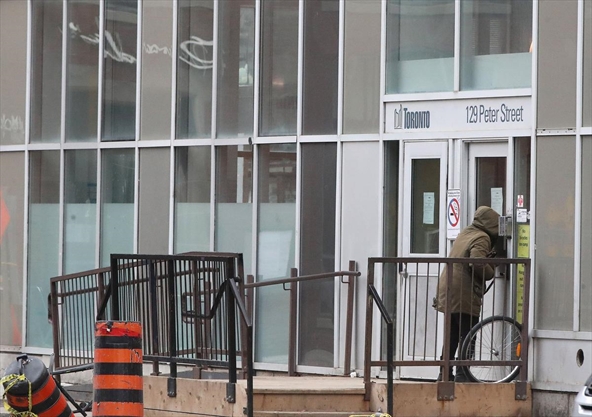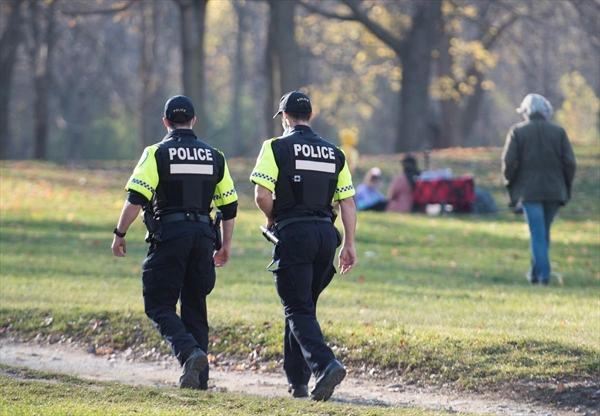may be no big deal to as far as his personal health goes, but it is sapping the strength of the populism that got him elected four years ago, according to a large, new survey of political values in the U.S. and Canada.
Populism is on the wane in Canada too, according to the cross-border poll by the Innovative Research Group, which also found that Canadians and Americans are more politically similar than one might assume in the fall of 2020.
The survey found, for instance, that the Black Lives Matter movement appears to have triggered a significant rise in people’s regard for Black citizens in Canada and the United States.
Both of these developments — declines in populism and racism — would appear to be not very good news for an American president who has been whipping up the two polarizing forces in a bid to seal his re-election on Nov. 3.
But they are also possible signs of at least something good coming out of a dreadful year in the U.S., Canada and around the world. The pandemic has wreaked all kinds of havoc in public health and the economy, but it has also transformed the Canada-U.S. landscape in ways unforeseen since the polling firm did a major survey like this before the last presidential election.
Multiple U.S. polls have been showing Trump’s re-election prospects in a slump, but , given exclusively to the Star, dives into some of the underlying values driving the political mood in Canada and the United States as a momentous election looms in less than a month.
“So for Trump, he’s got a less populist country. He’s got a less angry country,” says Greg Lyle, president of Innovative Research. “Americans are more angry at their governments than Canadians are, but they are less angry than they were four years ago, which is a bit of a surprise.”
The survey was carried out through online interviews with 2,771 eligible Canadian voters and 2,435 registered American voters between Sept. 29 and Oct. 6 — a week that saw headlines exploding in both countries about Trump’s COVID-19 diagnosis.
Innovative Research has been tracking the rise and fall of populism for several years now by asking people about their levels of trust in experts, governments, “common sense” and compromise.
The idea is that populism thrives on cynicism toward anything related to governments, elites and expertise — and breeds political polarization away from the middle ground. By these measures, the United States and Canada are currently seeing populism and polarization on the wane.
Trust in experts and preference for compromise is actually up significantly from where it stood in both countries four years ago, the survey found. In 2016, 55 per cent of Americans and 52 per cent of Canadian respondents agreed with the statement that “too often the government listens to experts instead of common sense.”
In 2020, that is no longer the majority view. In Canada, only 44 per cent of respondents said this year that they preferred common sense over expert opinion, and only 42 per cent of Americans thought that way.
“That’s COVID,” says Lyle, who has been watching Canadian opinion flocking back to science and away from street smarts throughout this pandemic.
“It became clear to people, as COVID fundamentally disrupted our world, that town halls are not enough to bring us back to normal,” he says. “People believe it will be experts in white coats that find the vaccine that will allow people to return to their regular lives.”
A full 51 per cent of Americans now say compromise is a necessary job for government — up 10 percentage points over 2016. Canadians’ opinions about compromise have shifted less dramatically, staying roughly steady in favour (50 to 51 per cent). But misgivings about the middle ground may be declining. In 2016, 34 per cent of Canadians said compromise usually didn’t end well, but that figure is only 31 per cent this year. (Polls conducted online do not come with a margin of error.)
Lyle says that this result, along with the marked increase in favourable opinion about Black people, are the two big standouts in this massive survey.
“The Black Lives Matter thing is really connecting in Canada as it is in the States,” Lyle says “It’s caused people to reconsider how they view Black people, and that’s dramatic.”
This finding emerges in what Lyle’s poll calls the “xenophobia index,” which tracks people’s response when asked to register their views on various segments of the population, from very favourable to unfavourable.
The difference between 2016 and 2020 is most remarkable in positive opinions of Black people, which have seen a 10-plus percentage-point jump in both countries. In 2016, only 51 per cent of Americans said they had favourable or very favourable views on Black citizens. That’s up to 62 per cent in this newest survey. The same jump has happened in Canada, from 55 per cent to 65.
COVID-19 has appeared to widen differences between Canada and the United States in many ways, most notably in the respective government’s management of the crisis. At times, Trudeau has almost seemed to be trying to be the anti-Trump, doing everything the American president does not.
But Lyle has been struck in this year’s survey by all the ways in which Canadian and American values are converging between 2016 and now. Mainly that’s happened by both countries moving away from polar differences on everything from globalization to view on whether it’s “hard to get ahead.” Americans are little less likely this year to feel that economic odds are against them, for instance, while Canadians are more so.
A fascinating finding shows that Trump and Trudeau actually enjoy similar approval ratings in their respective countries too — 48 per cent approval for the Canadian prime minister compared to 46 per cent for Trump. But the president, unsurprisingly, elicits more intense views; more people strongly like him and dislike him. Strong disapproval for Trump sits at 40 per cent, while Trudeau is strongly disliked by 27 per cent of respondents.
For the most part, the survey found remarkable cross-border similarity on an array of values such as free trade, government regulation and law and order.
But two big cultural differences stand: Americans are far more committed to hunting than Canadians are, and they are also far more likely hold “traditional” social values. “While a majority of Canadians are socially liberal, Americans are divided,” Lyle says.
This cross-border cultural solidarity bodes well for Canada-U.S. co-operation beyond the Nov. 3 election, especially if Trump loses. And yes, the survey does point in that direction, with 47 per cent of American respondents saying they intended to vote for Democrat Joe Biden and only 42 per cent leaning toward Trump. But 2016 was a lesson in not taking any predictions as foreordained — so is 2020, given that no one was forecasting a pandemic for this year.
Canadians and Americans are likely united, even unanimous, in hoping for an imminent end to the virus. But the collateral benefits of this strange year — the decline of populism and anti-Black racism — one hopes will be longer lasting.
Susan Delacourt is an Ottawa-based columnist covering national politics for the Star. Reach her via email: or follow her on Twitter: @susandelacourt























